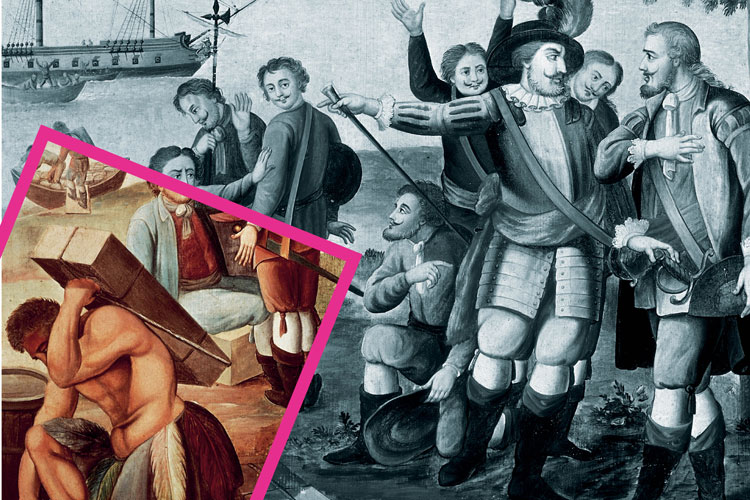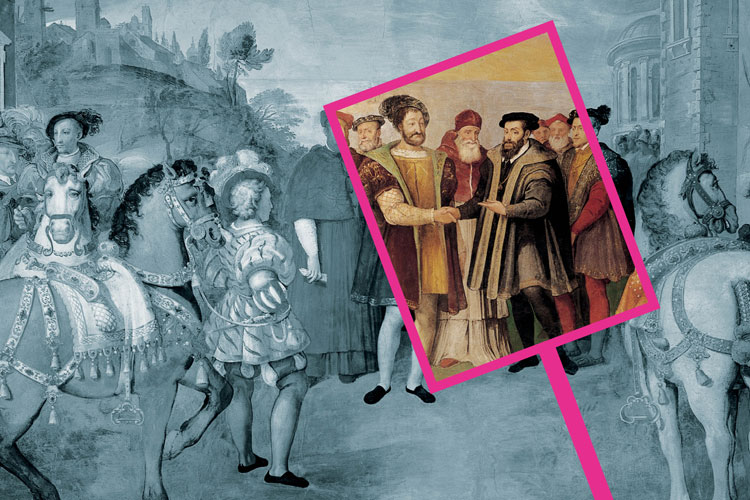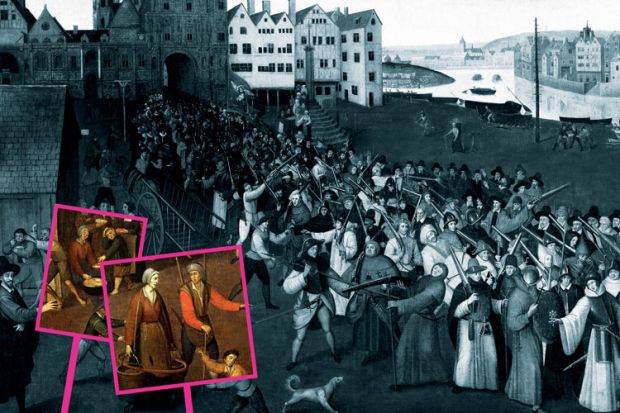We are fighting for our lives,” warned Sally Hunt, general secretary of the University and College Union, in her address to last month’s congress in Glasgow. “With job cuts and casual contracts sweeping our sector, our membership has fallen in recent years,” said Hunt, who announced plans to arrest the decline.
The slump in subscribers from about 120,000 when the UCU was formed in 2006 to just under 107,000 this year, has also coincided with mutterings about its delivery on bread-and-butter issues of pay and pensions.
In contrast to the bumper multi-year pay rises secured in the mid to late 2000s, the latest 1 per cent final pay offer from employers has been described by the UCU’s own negotiators as “disappointing”, even if it is better than many pay awards achieved since 2009.
Stopping the closure of final salary pension schemes at pre-92 universities was always going to be a huge task, but the loss of academia’s “jewel in the crown” from next year has inevitably raised concerns about the union’s ability to fight the big battles.
To this charge, many UCU reps will reply that improvements on pay and pensions have been won. “The last few years have been tough for the union and for the vast majority of people in the sector, but we have continued to fight for decent pay settlements and against the worst changes to pension schemes,” says Michael MacNeil, head of bargaining and negotiations. He points to the union’s efforts to close gender and race pay gaps and secure better deals at a local level for staff on insecure contracts as crucial ongoing battles fought by the UCU.
And officers would add that this campaigning constitutes a tiny minority of its work, much of which is focused on local issues. Some 63,000 staff in higher education pay a monthly subscription to the UCU, usually a sum of £18-£23, funding a total of 203 branches at UK higher education institutions.
“Organising strike action is important at certain points, but most years it will be less than 5 per cent of the work we do,” says Pekka Pitkänen, UCU branch secretary at the University of Gloucestershire.
So what are the key issues affecting union branches today, and what does the work of a union representative involve?
Much of union officers’ time is spent dealing with staff grievances, both at an individual level and more broadly concerning the impact of institutional policies, Pitkänen explains. Indeed, the UCU says that its officers gave advice to some 28,000 members in the past year alone and represented 7,000 for a grievance, disciplinary or other hearing. It also won nearly £10 million for members who were treated unfairly, it adds.
Addressing workplace stress is another unseen part of union work on campuses, says John Bamford, a health and safety consultant at the UCU. “Health and safety is often seen in physical terms – hazards, trips and slips, and guards for dangerous machinery – and that is important,” explains Bamford, a former coalminer who, after attending Ruskin College Oxford and the University of Oxford, has run safety courses for unions since 1978. “The rise in work-related stress in higher education, which causes members to go off sick, means risk assessments and monitoring around workload are just as important,” he says.
Rapid growth in student numbers has massively increased stress levels in universities over the past decade, as has the pressure to publish research and the introduction of more far-ranging performance management criteria, Bamford argues. Academics suffer far higher levels of stress around heavy workloads, management demands and pressure on their time than employees in other professions, according to the latest occupational stress survey, which was completed by 14,000 university employees in 2012. And other cost-cutting pressures placed on universities have led to added conflict within institutions in recent years that has required union intervention, he adds. For example, universities have been under pressure to consider their use of space, with many moving academics and administrators to open-plan offices, where “telephones are ringing, people lack privacy and it causes problems”. Bamford recalls one incident in which two university colleagues required to “hotdesk” almost had a punch-up in a dispute over who should sit at a particular station.
Technological developments have also changed the work of union officers, with new policies around the incorporation of new technologies into teaching posing a particular challenge for certain branches. “One of the issues we’re facing is a proposal to record all lectures,” says Hedley Bashforth, UCU branch secretary at the University of Bath. “Staff already record lectures when they think it is appropriate and we ran a poll which found 90 per cent of people wanted to keep the policy as it is,” he adds. He said that the branch wants Bath to present evidence on why the blanket recording is necessary – a policy that the university says is under consideration given the “potential pedagogical benefits”.
While many employees embrace the newfound opportunities to work from home provided by technology, such working patterns can also disguise the true levels of sickness and stress at institutions, says Kate Brown, a UCU officer at Middlesex University. “The way people report sickness has changed and this may make trends look better than they actually are,” she suggests.
And the move to communication within institutions being almost exclusively via email can pose problems for union recruitment and organising. At last month’s congress, several delegates said that it was often difficult to obtain the email addresses of hourly paid or casual staff because these employees were not always listed on departmental websites.
Many activists will also argue that institutions are taking a more confrontational stance with unions than they were a decade ago, with some coming close to outright victimisation of trade unionists.
Protests have taken place at the universities of Bolton and Salford recently over the sackings of prominent union members, while union relations at other institutions appear to have hit an all-time low.
In some departments, it is clear that management take a dim view of the work of unions and regard officers with contempt.

Trade unionists were described as “unpleasant and grubby little people” distinguished only by their “sad haircuts, chewed fingernails and failed careers” by Nigel Piercy, dean of Swansea University’s School of Management, in a blog published in April. Piercy also questioned the role of union officers who “purport to represent others because they have persuaded a tiny number of people to elect them to office in trade unions and the like”.
Sir Roger Jones, Swansea’s chair of council, later apologised for Piercy’s “puerile” and “gratuitously offensive” remarks, saying that the university had an excellent relationship with trade unions.
“There have been some testing times in recent disputes, particularly the hawkish universities who decided to dock a full day’s pay for a two-hour stoppage, which did nothing to help mend relations after that difficult dispute ended,” says MacNeil.
Keith Simpson, president at City University London’s UCU branch, believes conflicts with unions are becoming more frequent and embittered as institutions ramp up their use of performance assessment.
“Universities are trying to rise up league tables by improving their metrics, which is leading to more pressure on individuals,” he says. “People now feel victimised and under attack,” Simpson adds.
Yet many institutions are proud of their close relationships with trade unions, which can also save them money by avoiding costly industrial disputes or employment tribunals. “Both sides win and everyone sees the benefit,” says Terry Murphy, chair of the UCU branch at Teesside University, of his branch’s excellent relationship with Teesside management.
“We try to mediate where conflicts arise and join meetings with human relations to see how cases are handled,” Murphy says, adding that Teesside has one of the lowest outlays on legal fees as a result. “It also helps that we have regular meetings with the vice-chancellor, rather than just talking to junior management,” he says.
At Teesside, the money spent by institutions on “facilities time” – hours worked by elected union officers on union business – is vastly exceeded by the savings achieved by the UCU each year, Murphy believes.
But this “more sensible” relationship with management can attract criticism, says Dave Eagle, Teesside branch secretary. “You cannot get too much into bed with management – and I think we are tough on the big issues – but it is good for everyone that there are fewer formal grievances thanks to our success with management,” he adds.
Eagle believes that “compromise” is not a dirty word, particularly when dealing with cases of alleged bullying when emotions can run high. “You are there to get the best possible result for a member, not to get ‘justice’,” he says. That will inevitably mean compromise on both sides, rather than a grand reckoning in which bullies are drummed out of the institution and complainants given a grovelling apology, Eagle believes.
With many institutions recently announcing job losses – among them the universities of Aberdeen, Dundee, Exeter, London Met, Queen’s University Belfast, Reading, Surrey and Warwick – as a result of redundancy or restructuring programmes or, in some cases, falling student numbers, much recent casework has centred on staff concerns’ over redundancies or the reduction of teaching hours for teaching staff, leading to lower pay.
But that increased uncertainty over teaching has also had a different effect on caseloads, says caseworker David Hardman, UCU membership officer at London Metropolitan University. “People used to approach union reps saying ‘my workload is too much and I can’t do my research’,” Hardman says. “Now people are so afraid of redundancy that they are working more and more hours and taking on more responsibilities to avoid having their posts cut,” he adds, saying that “people are dropping down with stress-related illnesses as a result”. In the 2015 Times Higher Education Best University Workplace Survey of more than 4,000 university staff, almost half of academics (46 per cent) said that their job was having a negative impact on their health.
Union reps can sometimes find themselves in the firing line as it can be difficult to balance the demands of part-time union work with teaching and research, Hardman admits. Getting the balance right between his different university roles is “almost impossible”, he says. “I could easily work on casework every day of the week – just getting to grips with health and safety legislation is a huge study activity in itself,” Hardman says.
So what does the future hold for the UCU and the four other unions – Unison, Unite, the Educational Institute of Scotland and the GMB – involved in higher education? Will there be a shift towards non-unionised and possibly more pliant forms of employee representation, such as staff associations, as some institutions may wish? The University of Reading says that its new staff association for support staff will serve employees better than Unite and Unison; just 5 per cent of eligible staff were members before the two unions were derecognised last year.
But for Kim Frost, chair of Universities Human Resources and director of human resources at the University of London, there is no doubt that unions will continue to play a crucial role. With many institutions undertaking major changes in light of the 2012 funding reforms, unions are extremely important in representing staff views to management, for example.
The idea that universities are anti-union is “outmoded and does not really apply to our sector” as institutions are “joint enterprises between staff and management”, he adds, and their role in representing staff views on pay and pensions, university policies and other issues is key.
“I do not want to deal with thousands of staff individually on pay and other matters,” says Frost, who argues that institutions have “saved an enormous amount of time” through national bargaining.
Despite concerns that the one-size-fits-all approach to pay is unsuited to the current higher education landscape, the number of institutions within national bargaining has remained almost unchanged since 2012.
Many universities and union branches do not have the expertise required for detailed negotiations on pay and conditions that bargaining covers, Frost believes. Of declining union membership, he says: “There are, of course, issues around membership levels, which is why we give unions spaces to recruit members in addition to the facilities time provided by institutions.”
“I would not want a world without unions or representative groups,” agrees Indi Seehra, director of human relations at the London School of Economics, who believes that the sector’s relationship with unions is “generally very good”. Unions are excellent at communicating complex issues, such as the much-contested changes to the Universities Superannuation Scheme, to their members, and a “useful alternative voice to management”, Seehra says.
With a Conservative government taking office, unions will face difficult times in the coming years. Tory proposals to require at least 50 per cent of union members to vote in strike ballots will make industrial action far harder to carry out. It would have certainly scuppered last January’s industrial action over pay, which attracted only a 35 per cent turnout – which was, at the time, regarded as a fairly high turnout for a postal ballot. For core public services, including education, the government’s trade unions bill would also make it illegal to hold strike action unless 40 per cent or more of those entitled to vote backed such action.
Union reps, however, are determined to fight such challenges and carry on the vital role of representing staff across the sector. And for Frost, in the current climate, the work of unions is “more vital to higher education than ever”.

UCU Bath: a living wage win and expanding membership
“We’ve become a much more campaigning union in recent years,” says Hedley Bashforth, who has been secretary at the University and College Union’s University of Bath branch for the past five years.
“It’s not just a small number of people doing stuff either – lots of people are helping and they’ve become more creative in what they do”.
The campaign for a living wage, in which all campus staff would be paid at least £7.85 an hour, has been a strong rallying point for the UCU and other unions, he explains. “Unison had been banging on about this for two and half years, but students and academic staff became more involved with the campaign, which was certainly helped by the outrageous pay increases awarded to our vice-chancellor,” he adds.
“At one point it was necessary for our vice-chancellor to sneak our chancellor – Prince Edward [the Earl of Wessex] – through a back door for a meeting in order to avoid our protest,” he adds.
Last year, Bath announced that it would pay the living wage with effect from April 2015.
Bashforth says that the branch is “upbeat” and membership numbers have grown in recent years, despite falls in numbers nationally.
He says that while management do not immediately approach the UCU for its input on most issues, “there are still back channels where we can communicate and effect change”.
The union is vital to keep in check what he sees as Bath’s desire to push forward change without proper consultation of staff.
“Management are always seeking to jump on a new bandwagon or chase the next fad,” he claims. “It’s up to the union to say ‘why are we doing this?’ ”
In a statement, Bath said that its unions worked with the university on its human resources policies, as well as its health and safety work.
The introduction of a new disability leave policy, which followed a proposal by union representatives, was a good example of this partnership, it said.
“This pioneering policy ensures that the employment opportunity of staff who are disabled or become disabled during their course of employment with the university is positively managed,” Bath said.
POSTSCRIPT:
Article originally published as: Backstage hands (25 June 2015)
Register to continue
Why register?
- Registration is free and only takes a moment
- Once registered, you can read 3 articles a month
- Sign up for our newsletter
Subscribe
Or subscribe for unlimited access to:
- Unlimited access to news, views, insights & reviews
- Digital editions
- Digital access to THE’s university and college rankings analysis
Already registered or a current subscriber? Login



